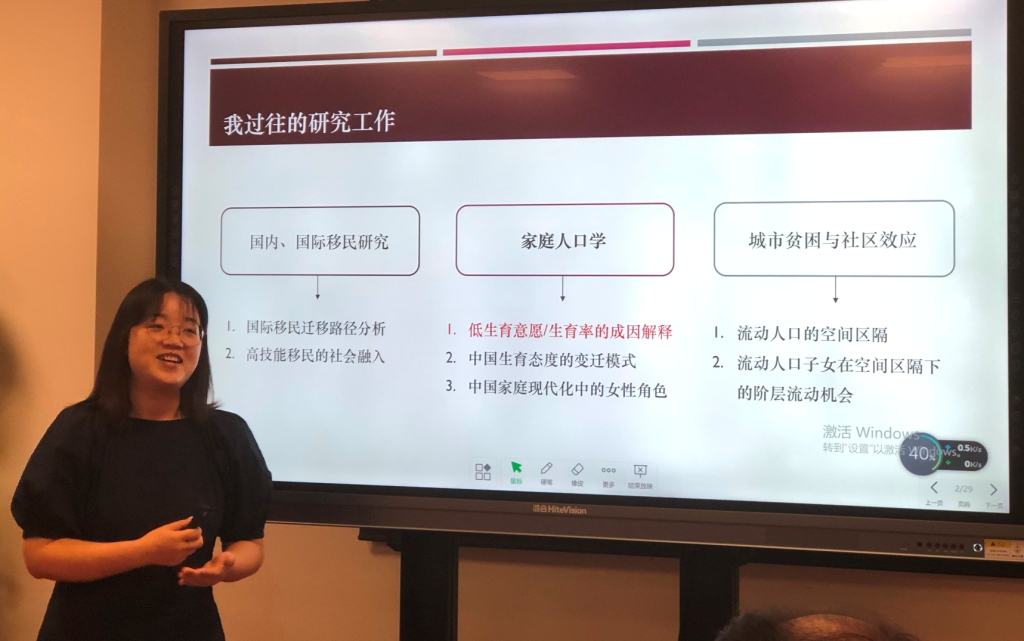On Sep 07, 2022, the first " Topical Social Sciences Seminar " of Fudan Institute for Advanced Study in Social Sciences (Fudan IAS) was held in Fudan University. The speaker of this session was Dr. Yiqing Gan, research fellow at Fudan IAS and doctor of sociology from the Chinese University of Hong Kong. Her topic was Social Class, Intergenerational Mobility, and Fertility Intentions in China. Prof. Sujian Guo, Dean and Distinguished Professor of Fudan IAS, chaired the seminar. All researchers and post-doctoral fellows of Fudan IAS attended the seminar.

Dr. Gan stated that exploring the reasons for the trend of low fertility intentions has become the focus of social science research, as more and more countries enter the era of low fertility. However, past studies have mainly focused on the current fertility constraints, but ignored the fact that fertility intentions are shaped over a much longer social process. Over the past few decades, China has experienced a rapid decline in fertility to very low levels, and people's fertility intentions continues to decline. This has been accompanied by a dramatic restructuring of society and upward mobility between classes. These two transformations embedded in the same period help us explore the relationship between social class, intergenerational mobility and fertility intentions. By analyzing the data from the 2010-2017 China General Social Survey, Dr. Gan found that the relationship between social class and fertility intention is a "checkmark" curve, i.e., the social class of farmer in China wants to have the most children, the class of manual workers has the lowest, and the class of management and technical personnel and the class of other general non-manual personnel are in between. In addition, an individual's class of origin and current class have equal weights on fertility intentions, suggesting that socialization and acculturation processes coexist here. Besides that, by analyzing gender differences, Dr. Gan concluded that after experiencing intergenerational mobility, females are more likely to conform to the fertility paradigm of their current class, while males are more likely to maintain the fertility paradigm acquired from their class of origin.
After the Dr. Gan’s speech, the participants discussed and exchanged their views on the concepts, theories, approaches, data and other issues related to this topic.
